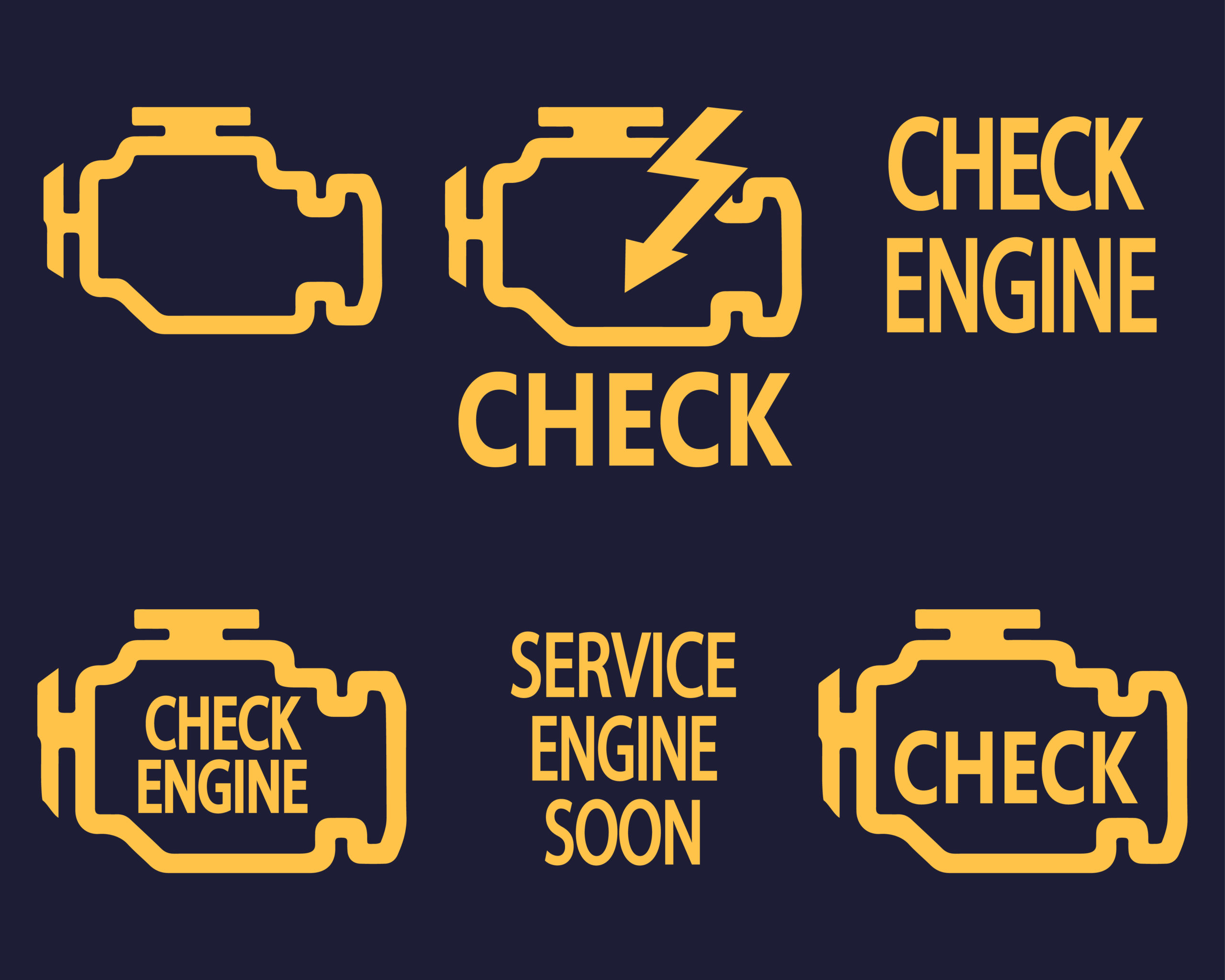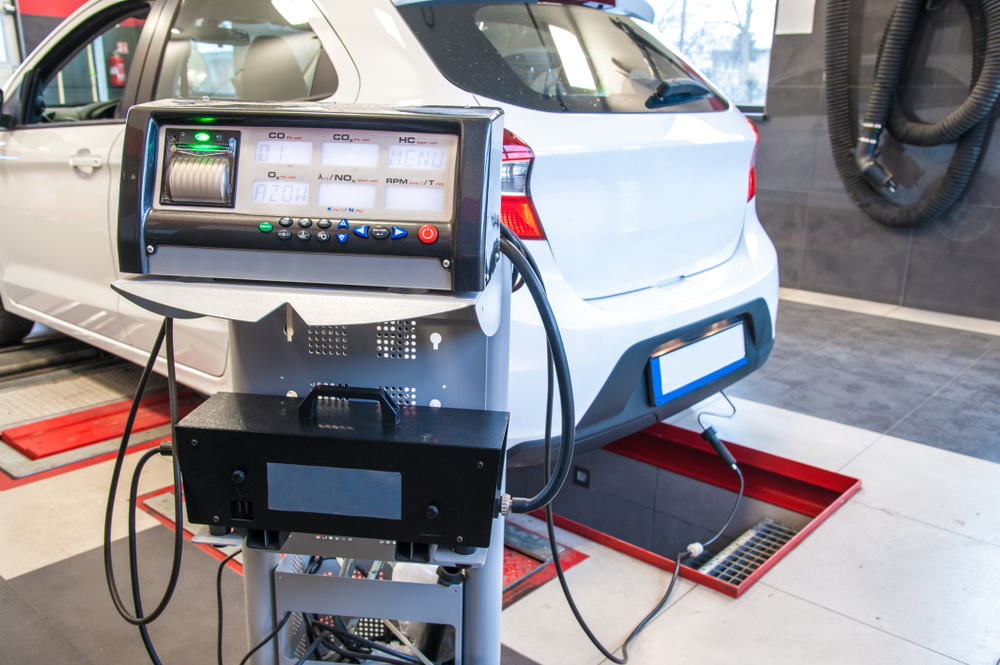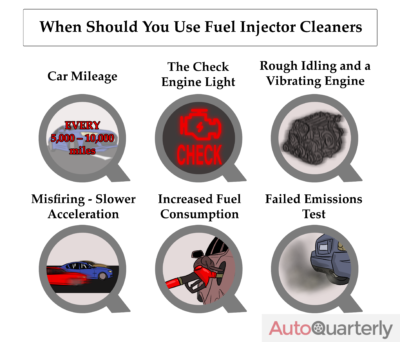Fuel injectors are one of the most important components in your vehicle’s engine. Their purpose is to direct pressurized fuel into the engine cylinders for combustion. However, they can get clogged by impurities and debris from the fuel and external sources. This is where fuel injector cleaners come in.
Fuel injector cleaners work to dissolve and clear any such blockages in the fuel injectors and other parts of the fuel line. This guide will provide an in-depth analysis on everything that you need to know about using fuel injector cleaners.
How Do Fuel Injector Cleaners Work?
Basically, these cleaners are solvents that are formulated to act on the debris and particles that are commonly found in the fuel line, with specific emphasis on fuel injectors. To really understand how fuel injector cleaners work, it is important to first understand how the closed fuel line gets debris and particle buildup.
Most clogging in fuel injectors can be attributed to three main culprits:
- Ethanol: Initially, ethanol was added to fuel to reduce harmful greenhouse gases and carbon monoxide emissions. Modern engines no longer require ethanol to keep within the regulated emissions standards. However, ethanol is still added to fuel to lower its cost, as it is cheaper to source.
Modern engines are designed to process this ethanol, but older engines struggle to do so. The unprocessed ethanol oxidizes to form non-combustible solid particles that clog the fuel injectors and other engine components.
- Carbon: Carbon is the main ‘ingredient’ in all petroleum products used to fuel cars. Unfortunately, as with any machine, even modern engines running at optimal performance levels cannot achieve 100% efficiency during combustion.The fuel that does not undergo full combustion ends up creating solid carbon particles that clog up the fuel injector and the exhaust system.
- Mineral Deposits: The process involved in processing crude oil into usable fuel creates a complex product. Petroleum fuel is not just made up of hydrogen and carbon; there are numerous other ingredients – most of which include mineral components.These minerals can accumulate on the fuel injectors and other sections of the fuel line, creating clogs and blockages.
Fuel injectors are formulated to specifically break down any solid debris caused by the above-listed substances. To achieve this, most of the commercially available fuel injector cleaners contain three main active ingredients:
- Polyether Amine (or PEA): This is a chemical substance that breaks down solid deposits and debris at the molecular level. The buildup is broken down into small particles that can be safely expelled through the exhaust system. Products that use this chemical substance are less likely to leave any residue in the engine, fuel line, or fuel injectors.
- Polyisobutylene (or PIB): This is a ‘detergent’ that prevents sediment buildup in the fuel injector and other parts of the fuel line and the engine. It can also help lessen engine knock issues or misfiring.
- Polyisobutylene Amine (or PIBA): One of the byproducts of hydrocarbon fuel combustion is water vapor. Any water that remains in the engine can be destructive, as it facilitates the oxidation of metal components leading to rust damage. Polyisobutylene amine is a chemical that removes this moisture from the engine. This is more useful as a maintenance product, since it isn’t as effective at removing buildup from the combustion chamber.
Choosing the Right Fuel Injector Cleaner for Your Vehicle
It is important to ensure that you are adding the right type of fuel cleaner to your fuel tank. When you use the wrong type of cleaner, the best-case scenario is that it will be ineffective. In most cases, this leads to your vehicle’s fuel line and engine being subjected to further damage.
There are two main factors that determine the right cleaner for your car. The first of these is the fuel type that your engine uses. There are different options for diesel and gasoline engines. The engine size is the other important factor to consider when choosing the right cleaner for your car.
Most car manuals, especially for reasonably modern car models, will include some guidance as to the right type of fuel injector cleaner to use. You can also get this information online, either from the manufacturer’s website or from websites, blogs, and message boards catering to car owners.
However, the most reliable source of information when choosing the right fuel injector cleaner has to be a trained mechanic.
How to Use Fuel Injector Cleaners
There are three main steps that have to be followed if you want to avoid having an unpleasant experience with fuel injector cleaners.
- First, you have to ensure that the car’s fuel tank is as close to empty as possible. This makes it easier for the fuel injector cleaner to mix with the fuel.When fuel is added to a tank with the cleaner, you achieve a much better mixture than adding the cleaner to a full tank of fuel.
- The second step is to ensure that you are adding the right amount of fuel injector cleaner to your vehicle.The best way to determine the right amount is to consult with a professional mechanic and to read the instructions that come with most fuel injector cleaners. This is an important step as using the wrong amount could end up damaging your car’s engine.
- The third step is to ensure that you fill up your tank again before using the vehicle. Again, you need to consult with a trained mechanic on the right amount of fuel to add to the tank after the fuel injector cleaner has been introduced.In most cases, this step also includes some ‘idle time’ whereby the vehicle shouldn’t be used until this time elapses. This is to ensure that the cleaner and the fuel mix properly before being deployed.
Using Fuel Injector Cleaner on Idle Vehicles
When you plan on storing your vehicle for an extended period of time, usually around 30 days, then sediments will naturally start accumulating in the fuel tank. These particles will cause problems when you finally run the engine as they get stuck in the fuel injector and other sections of the fuel line and vehicle engine.
There are fuel injector cleaners that are specifically formulated to keep the stored fuel “fresh” for up to two years. As with any other type of chemical additive, you need to consult with a mechanic to ensure that you use the right formulation for your vehicle, at the right amounts.
Once you finally start your car, you are advised to let the engine run in an idle state for at least 30 minutes to ensure that the cleaner has time to go through your engine, clearing any particle buildup before operating the vehicle.
When Should You Use Fuel Injector Cleaners?
While fuel injector cleaners should be viewed as a preventative measure, they can be used to address a clogging/blockage issue. Cleaners should be used regularly to prevent buildup or to address an existing problem if you determine your fuel injector’s performance is being hampered by clogging.
As a preventative measure, there is no “right” schedule that applies to all vehicles. A qualified mechanic would be in a better place to determine the right schedule for using these cleaners. Depending on your vehicle’s age and how you use it, most vehicles require fuel injection cleaning every 5,000 – 10,000 miles. You could also benefit from including fuel injection cleaner in your regular service schedule.
There are symptoms that you can look out for which might indicate that your fuel injector has a blockage problem. They include:

The Check Engine Light
The check engine light is usually activated when the engine is not performing optimally. Several engine issues usually trigger this warning system, with malfunctioning fuel injectors being one of them. This is usually one of the first signs that the fuel injectors might be clogged.
Rough Idling and a Vibrating Engine
A clogged fuel injector results in the affected cylinder not being able to fire optimally. This reduces the engine’s rotating speed, which can be seen by sub-optimal values on your rev (RPM) counter. This can cause the engine to stall while in the idle state. It can also cause the engine to vibrate due to the uneven cylinder power output.
Misfiring
When a fuel injector is clogged, the engine is undersupplied with fuel. This causes the engine to misfire, resulting in slower acceleration as the engine responds slower when you step on the gas pedal. Misfiring can also result in a noticeable fuel odor as the unburnt fuel is released directly to the exhaust system.
Increased Fuel Consumption
A lot of waste in the form of unburnt fuel usually occurs when fuel injectors are clogged. The car has to consume more fuel to match its usual performance levels. Experiencing a much poorer fuel economy is one of the key symptoms of a malfunctioning fuel injector.

Failed Emissions Test
A vehicle’s emissions are a direct result of the efficiency of the combustion process. When unburnt fuel and other impurities get into the exhaust system, then a vehicle’s emissions will contain more pollutants.
While each of these symptoms, in isolation, could be caused by other engine systems malfunctioning, when your car experiences two (or more) of the listed symptoms concurrently, there are huge chances that the problem lies with the fuel injectors.
Fuel Injector Cleaners Help Maintain Your Car
Every responsible vehicle owner knows that regular maintenance and the use of preventative measures are of paramount importance. Failing to do so not only results in an underperforming vehicle, but it can result in massive repair costs when a major malfunction occurs due to negligence. The fuel injector directly affects the vehicle’s performance as it provides the pathway for fuel to be introduced to the combustion chamber.
Fuel injector cleaners are the most efficient and cost-effective way for owners to prevent sediments and particle buildups from clogging the fuel line. Consult with your vehicle’s manufacturer and a qualified mechanic on the right formulation to use, the recommended amount, and the appropriate schedule regarding fuel injector cleaners. Always be vigilant in spotting the symptoms of a malfunctioning fuel injector.



